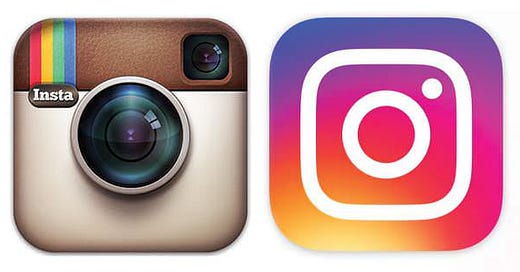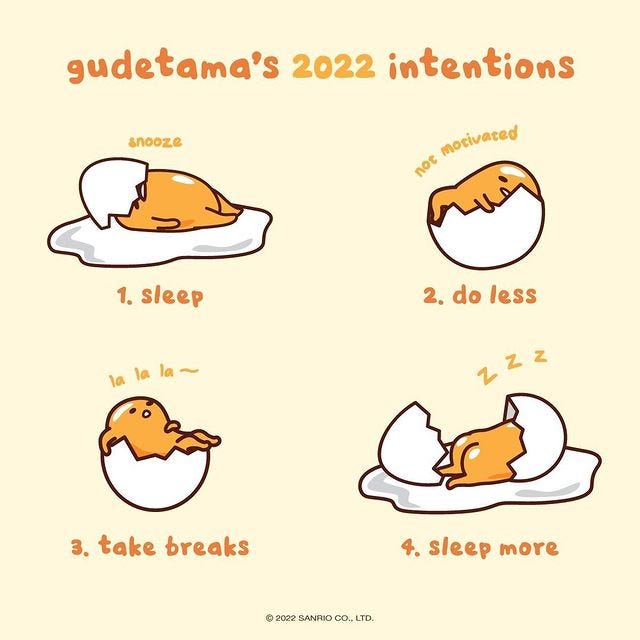22. Why I stopped using Instagram, pt. 1
Exploring the roles of time, attention, context, and nuance.
Here is a surprise interlude from the art to explain my departure from Instagram – perhaps temporary, perhaps not? – and to welcome an expanded direction for this newsletter.
I claim no groundbreaking revelation here; I know social media hiatuses and outright exits are by no means original. The seed of my decision was planted by several considerations over the last months, which grew so large in my mind I could no longer ignore them.
This attempt to articulate my reasons has grown to the length of an average college paper, and upon suggestion from a friend, I’ve split this into two parts. Here is the first: please settle in with a warm drink and comfy seat!
Time and attention
Recently writer and lawyer Seth Haines declared a 6-month break from social media, and wrote two pieces reflecting on the situation: “They’re coming for your eyes!” and then “A Social Media Experiment: Kicking the Habit.” I already knew about unintended consequences such as the correlation of increased smartphone use with depression in youth, but Haines’ posts shone new light on the sheer amounts of time and attention social media drains from everyone.
As many large-scale decisions in this world are motivated by corporate finances, so too is Instagram’s decision to design an addictive app. Because Instagram profits from advertisements, the more we scroll through the targeted content we enjoy, the more money Instagram makes. The dopamine hits from a like, comment, or interesting post are carefully doled out along an endless feed, to keep us scrolling, liking, commenting, and messaging as long as possible.
Anyone with a smartphone is familiar with the near-automatic reflex to check the screen when in line at the store, or in the elevator, or during any modicum of spare time. We’ll take any scrap of dopamine to distract and buffer from the tedium of everyday life (that which David Foster Wallace discussed in “This Is Water”). For me this habit has resulted in a shorter attention span, and amplified my general tendency to live in my mind rather than my body, my thoughts jumping from one idea to the next.
More harmful to social interactions is when we default to extended phone use around other people. We’ve all seen kids absorbed by screens while their parents are otherwise occupied, or a couple silently using their respective phones during a restaurant date.
Human life is short and unpredictable. Time and attention are precious resources; do we really want to fritter them away scrolling on a tiny screen, double-tapping to like random, pretty, funny distractions?
Idle distractions, or meaningful ideas?
Distracted from distraction by distraction
Filled with fancies and empty of meaning
Tumid apathy with no concentration
Men and bits of paper, whirled by the cold wind
That blows before and after time,
Wind in and out of unwholesome lungs
Time before time and after.– T.S. Eliot, “Burnt Norton” in Four Quartets, published in 1943
T.S. Eliot knew what was up, even before personal computers were invented. The more we process – our attention already compromised by layers of buffering and distractions – the more each bit of information seems less important. The Instagram feed barrages our eyes with dozens, maybe hundreds of images and ideas in one scrolling session. I doubt our brains can process that amount of information in a meaningful manner. I believe so because I would be hard-pressed to describe to you anything I “liked” the previous day, or even 15 minutes ago.
Each post might have meant a lot or a little to the person who made it – but because every post takes up roughly the same amount of space, all of that varied effort and intent is flattened, and soon becomes yesterday’s news. This is further complicated by the algorithm mixing up the chronology of posts, deciding what we should see based on our past patterns of engagement (likes, follows, comments, time spent, topics of interest, etc.). Because our engagement doesn’t necessarily mirror our inner thoughts, I would argue the algorithm’s privileging of certain posts above others is arbitrary. Even though I would have enjoyed seeing my friends’ posts right away, if I didn’t communicate this in a way the app understood, their posts may not surface on my feed until one or two days later.
Under these circumstances, it’s entirely understandable why people might have more trouble distinguishing what is important – what is truly worth their time and attention.
Loss of nuance and context
In this flattened, rapidly-churning space, users still aim to garner as many likes and followers as possible. They’re likely to find that success comes from posting simply, clearly, for a broad audience. The skew towards short, eye-catching, and otherwise provocative posts discourages the sort of nuance one might use when writing to a friend or even a select audience (the same nuance I am attempting to regain with this newsletter). Indeed, time and attention are the key resources, dare I say prizes, for which all aspiring Insta-famous influencers compete.
We see this in the Instagram mental health space, for example. Over the last year or two, I’ve noticed my feed and search page become dominated by art, memes, and infographics expressing the sentiment that everyone is perfect as they are, and needs to take it easy on themselves. Of course, it’s fair to say someone who is burnt out from working to serve others could benefit from reassessing their priorities and making time for themselves. Such posts were probably written by and for the type of person for whom this is true. (I mean, what does it say about me that Instagram fed me these posts? 🤪)
Memes with characters such as the lazy egg Gudetama are cute, but potentially enabling.
However, this line of thinking could provide a built-in escape valve for people who legitimately didn’t exert effort in the first place. At its worst, this is an excuse to retreat from one’s problems and declare helpless victimhood, rather than distinguish when some perseverance is required. There’s a difference between abdicating personal responsibility, and simply finding more time for rest in a busy, otherwise-fulfilling lifestyle. Because of the context-dependent nature of such an argument, there are shades of meaning that I’m not capturing here, either – illustrating my point that important issues deserve even more space to fully explain, or to delve into through conversation.
@seerutkchawla, whom I credit my friend Savindi with finding, is a counter-example: this psychologist is helping to unpack the oversimplified “insta-therapy” arguments.
This overall loss of nuance also leads Instagram into the territory of reactionary politics. In Part 2, I will tackle this, as well as the implications of the algorithm for up-and-coming artists.
In the meantime, I’d love to hear from you in the comments. Did you resonate with any of the points I made? Do you agree or disagree? Maybe we can have a thoughtful back-and-forth, unbound from the Instagram phone screen or Twitter character count :)
Or feel free to send this to a friend, and start your own conversation:
Either way, thank you so much for reading. If you want to keep up with my art and thoughts, you are very welcome to subscribe!






I definitely relate to all three of these reasons to avoid social media. I have a complex relationship with it because it's my job, which means I'm forced to know what's going on and trending, but I think it also gives me a layer of media literacy and mental separation, a protection that some users don't have.
I'm a firm believer that social media can be a force for good, but like you write about here, there is no space for nuance. There's a lot of discussion of right vs. wrong, healthy vs. toxic, and conflicts that are complex by nature get dumbed down to a hero and a villain (the Bad Art Friend discourse on Twitter comes to mind).
Social media *can be* a tool for community and connection, but you have to force it to be so. Using passively can lead to many negative outcomes.
When I stopped working for a while last year, I took the opportunity to be offline for a couple months and it was really restorative. Even after I got back online, I was able to do so with renewed intention and boundaries. So whatever you decide, I think you'll find the break to be very worth it.
Hey Rachel! It's great to read this (I finally got around to it as I cancelled my home internet!) I read Pt. 2 as well.
We spoke before through Instagram about it's detriment to our mental health. It's interesting as I've popped in a couple of times to promote a music video I made and the fact that I started a Patreon as a way to share my work and also hopefully support myself along the way. Of course through doing this nothing much came of it and it reminded me of the passivity of apps like Instagram. When I do engage with creative folks through different means we end up getting into some pretty deep discussions about topics we really care about but these are of course spaces that encourage that type of discussion. Spaces where you're not necessarily scrolling but reading and thinking, message boards really.
I hope the break is treating you well. Some things I've noticed since getting away from Instagram and also the internet in general is that I'm getting my senses back about the world, I feel more and think more deeply when experiencing life. I don't think about my movement through the world as being shareable, I'm just living. I have also read so many books and I write a lot more for myself! I hope you're finding good in it too!